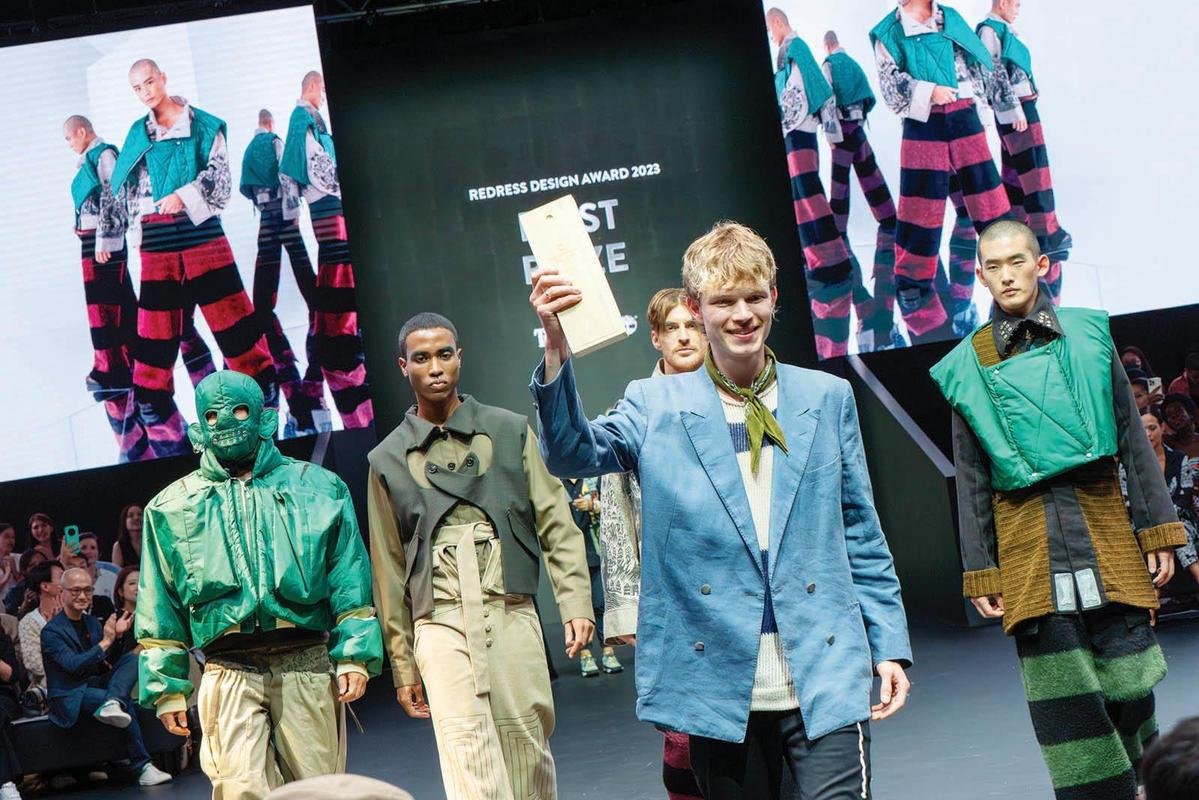Growing up, Nils Hauser cherished the joyous camping trips with his family amidst the dense forests and serene lakes of Germany. As the years passed and adolescence kicked in, the family trips dwindled. “There comes a time when camping with family isn’t on your list of priorities,” quips Hauser, reminiscing during a video call from Düsseldorf, where he’s currently pursuing his passion at the Fashion Design Institute.
Tucked away in the basement of his childhood home, the forgotten camping tent from his adventures would soon find a new purpose. Hauser, deeply influenced by sustainable practices in fashion, saw potential in the neglected item.
Festival grounds strewn with discarded tents provided the spark. “It occurred to me – the fabric from these tents was not only sturdy but also premium in quality. Why not repurpose it?” Acting on this epiphany, Hauser retrieved his old tent, embarking on a journey to transform it.
He crafted a bomber jacket and a vest from the tent material. However, the process wasn’t without its challenges. The tent’s aluminium coating, designed for waterproofing, continuously stuck to his sewing machine. When an attempt was made to iron it, the material began to melt. But perseverance saw him through. More than just an upcycled piece, the creations held sentimental value. “That tent is imbued with countless memories,” Hauser reflects. His experiments with sustainability also extended to reusing leftover upholstery from furniture stores.
Recognizing his unique talent, one of Hauser’s professors nudged him towards the Redress Design Award – the globe’s premier competition for eco-friendly fashion, hosted annually in Hong Kong by the esteemed NGO, Redress.
Outshining a diverse group of finalists spanning multiple continents, Hauser clinched the coveted title, a testament to his unparalleled creativity and dedication. The accolade was a game-changer. Among the opportunities that followed, a call from the vice-president of the German fashion council stood out, and soon, a feature in a prominent Hong Kong-based fashion magazine was on the cards.
“The recognition feels surreal. It’s a validation of my collection’s worth,” says an elated Hauser. A part of his prize entails a collaboration with renowned brand Timberland for their Spring 2025 apparel line, set in Tokyo. He muses, “Sharing my designs used to be a daunting task, given my reserved nature. But this journey has been transformative.”
The fashion industry, notorious for its environmental footprint, could benefit from more visionaries like Hauser. An astonishing 100 billion apparel items emerge yearly, a sharp rise from just a decade and a half ago. Tragically, most are doomed for landfills or incineration within mere months of their creation. The inception of a design holds the key to its ecological impact. As Redress’s visionary founder, Christina Dean, puts it, “The blueprint laid out by designers can be revolutionary.”
Dean showers praise on Hauser’s multidimensional skill set, emphasizing his spirit of collaboration. “Although a winner, Nils exemplifies the quintessential modern designer, understanding the collective strength of teamwork.”
Echoing Dean’s sentiments, Krystyna Dzan, a high-ranking official at Timberland Asia-Pacific, commends the universality of Hauser’s designs, optimistic about the industry’s sustainable evolution.
“Collaborating with Nils at our Tokyo design hub is eagerly anticipated. It’s a symbiotic relationship, offering him invaluable exposure while enriching our design community.”
READ MORE:
